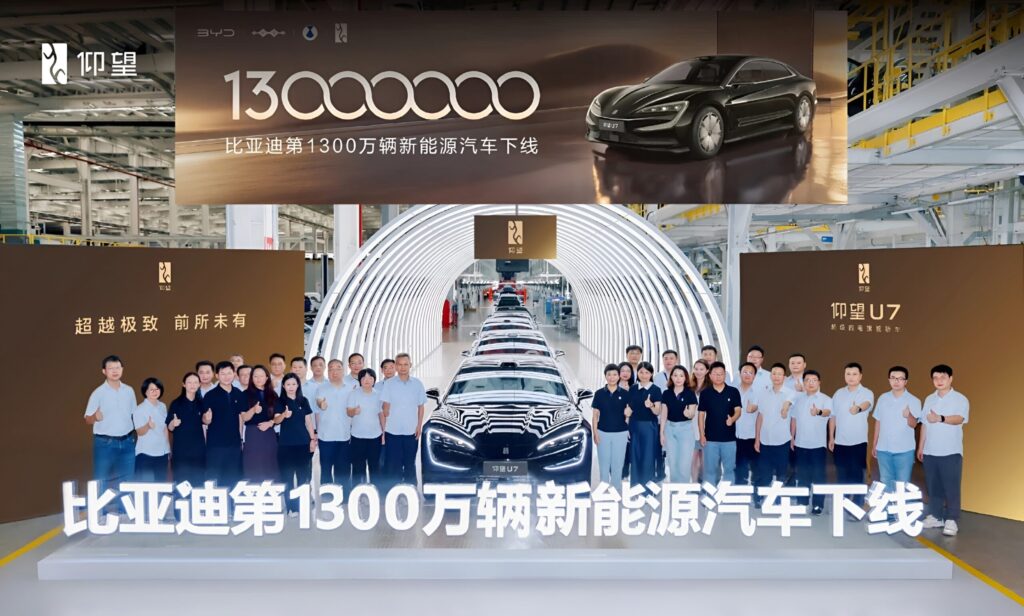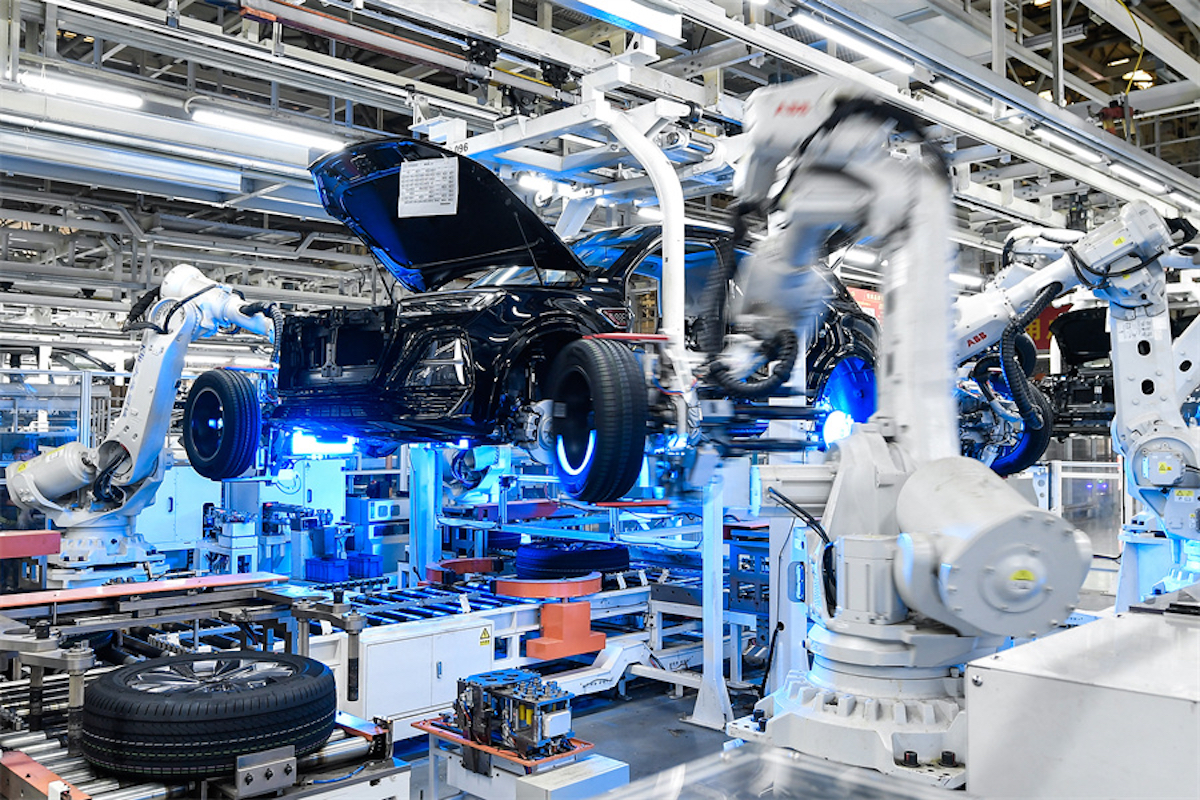
BYD has proudly announced a significant milestone in its journey toward sustainable transportation: the production of its 13 millionth new energy vehicle (NEV). This landmark achievement was marked by the rollout of the Yangwang U7, a high-performance sedan from BYD’s premium sub-brand, Yangwang. The milestone comes just eight months after the company celebrated its 10 millionth NEV, the Denza Z9 GT, in November 2024.
The Yangwang U7 is available in two variants: a battery-electric version and a plug-in hybrid. The electric model boasts impressive dimensions, measuring 5,265 mm in length, 1,998 mm in width, and 1,517 mm in height, with a wheelbase of 3,160 mm. It is equipped with four electric motors that produce a combined output of 960 kW (1,287 hp), allowing the car to accelerate from 0 to 100 km/h in just 2.9 seconds and reach a top speed of 270 km/h. A robust 135.5 kWh battery offers a CLTC-rated range of up to 720 km.
Innovative Technology and Design
The U7 introduces BYD’s cutting-edge fully digital chassis control system, integrating the Disus-Z active suspension and the YiSiFang four-motor independent drive system. This system uses electromagnetic actuators instead of traditional hydraulic dampers, and the rear wheels can turn up to 20 degrees, significantly reducing the turning radius to just 4.85 meters.
The vehicle’s aerodynamic design is highlighted by a drag coefficient of 0.195 Cd, achieved through a coupe-style roofline, retractable door handles, aerodynamic wheels, and an active rear spoiler. Inside, the U7 features a modern, symmetrical design centered around a 12.8-inch OLED touchscreen and a 23.6-inch 4K naked-eye 3D instrument panel. The front passenger benefits from an additional 23.6-inch screen, and the advanced voice assistant supports lip-reading and dialect recognition with a response delay of less than 300 milliseconds.
Performance and Luxury
The plug-in hybrid version of the U7 is slightly longer at 5,360 mm and combines the same electric motor configuration with a 2.0-litre turbocharged engine rated at 200 kW (268 hp). It features a 52.4 kWh battery and a 60-litre fuel tank, providing an all-electric range of 200 km and a total mixed range exceeding 1,000 km.
The U7 is available in both four-seat and five-seat configurations. The flagship four-seat version offers rear-seat entertainment screens, dual refrigerators, and Nappa leather seats with ventilation, heating, and massage functions. Both versions are equipped with a Dynaudio Platinum sound system, ensuring a premium audio experience.
In China, the five-seat luxury version is priced at 628,000 yuan (approximately 87,500 USD), while the four-seat flagship version is priced at 708,000 yuan (roughly 98,500 USD).
Market Impact and Future Prospects
The announcement comes as BYD continues to solidify its position as a leader in the global NEV market. The company’s rapid production growth reflects the increasing demand for sustainable and technologically advanced vehicles. According to industry analysts, BYD’s focus on innovation and luxury in models like the Yangwang U7 could further enhance its competitive edge in both domestic and international markets.
Meanwhile, the global automotive industry is witnessing a significant shift towards electrification, with major manufacturers investing heavily in NEV technologies. BYD’s milestone of 13 million NEVs underscores the accelerating pace of this transformation and highlights the company’s pivotal role in shaping the future of transportation.
Looking ahead, BYD’s continued investment in research and development, along with its strategic expansion into new markets, positions the company well to meet the growing demand for electric vehicles. As the world moves towards a greener future, BYD’s commitment to innovation and sustainability remains at the forefront of its growth strategy.
With the Yangwang U7 leading the charge, BYD is poised to continue its trajectory of success, driving the evolution of the automotive industry towards a more sustainable and technologically advanced future.





